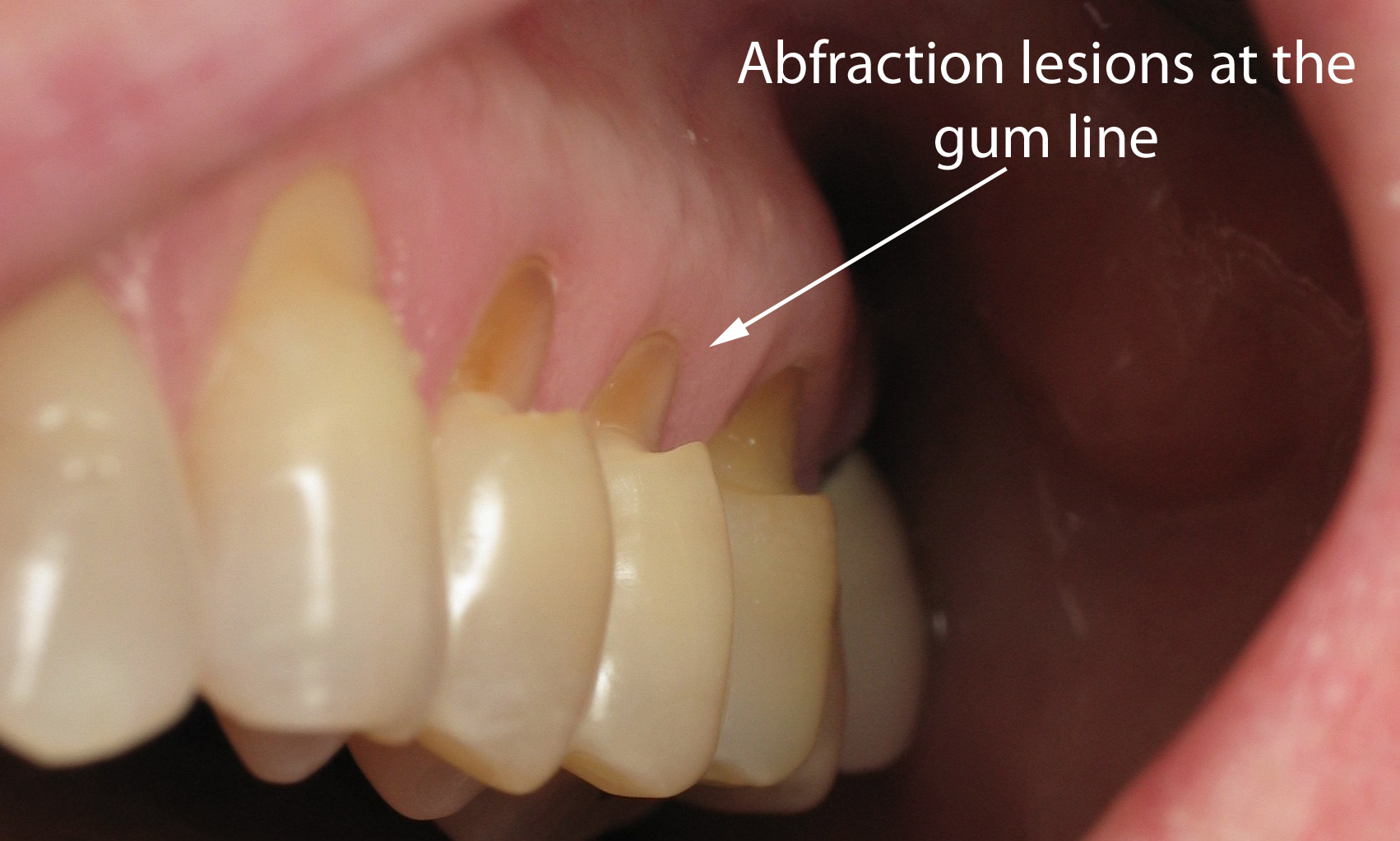Abfractions On Teeth

Abfractions on teeth are a type of dental lesion that has been a subject of interest and debate among dental professionals for many years. These lesions are characterized by the loss of tooth structure at the gum line, often resulting in a notch or a V-shaped defect. Abfractions are considered to be a non-carious lesion, meaning they are not caused by tooth decay, and are instead thought to be the result of a combination of mechanical and biological factors.
Introduction to Abfractions
Abfractions were first described in the dental literature in the 1920s, and since then, they have been the subject of numerous studies and research papers. Despite this, there is still a significant amount of controversy and uncertainty surrounding the etiology and treatment of abfractions. Some dentists consider abfractions to be a minor cosmetic issue, while others view them as a sign of a more serious underlying problem.
Causes of Abfractions
The exact cause of abfractions is still not fully understood, but it is thought to be the result of a combination of factors, including:
- Tooth flexure: When teeth are subjected to heavy chewing forces, they can flex and bend, leading to the formation of micro-fractures at the gum line. Over time, these micro-fractures can coalesce to form a larger defect.
- Gum recession: As the gums recede, they can expose the root surface of the tooth, making it more susceptible to abrasion and erosion.
- Acid erosion: The frequent consumption of acidic foods and drinks can weaken the tooth enamel, making it more prone to wear and tear.
- Bruxism: Teeth grinding and clenching can put excessive pressure on the teeth, leading to the formation of abfractions.
Symptoms of Abfractions
Abfractions can be asymptomatic, meaning that they may not cause any noticeable symptoms. However, in some cases, they can cause:
- Tooth sensitivity: Abfractions can expose the dentin, the layer of tissue beneath the enamel, which can be sensitive to temperature changes and sweet or sour tastes.
- Pain: In severe cases, abfractions can cause pain, especially when the tooth is subjected to heavy chewing forces.
- Cosmetic concerns: Abfractions can be unsightly and can affect the appearance of the teeth.
Treatment of Abfractions
The treatment of abfractions depends on the severity and extent of the lesion. In mild cases, abfractions can be treated with:
- Fluoride varnish: Applying a fluoride varnish to the affected area can help to strengthen the tooth enamel and reduce sensitivity.
- Dental bonding: A tooth-colored resin can be bonded to the tooth to repair the defect and improve the appearance of the tooth.
- Gum grafting: In cases where the gum recession is severe, a gum graft may be necessary to cover the exposed root surface.
In more severe cases, abfractions may require:
- Crown placement: A crown can be placed over the tooth to protect it from further wear and tear.
- Root canal therapy: In cases where the abfraction has exposed the pulp, a root canal may be necessary to remove the infected tissue.
Prevention of Abfractions
Preventing abfractions requires a combination of good oral hygiene practices and dietary changes. Some tips for preventing abfractions include:
- Brushing and flossing regularly: Removing plaque and bacteria from the teeth can help to prevent acid erosion and gum recession.
- Using a soft-bristled toothbrush: A soft-bristled toothbrush can help to reduce the risk of tooth wear and tear.
- Avoiding acidic foods and drinks: Limiting the consumption of acidic foods and drinks can help to reduce the risk of acid erosion.
- Wearing a mouthguard: Wearing a mouthguard at night can help to reduce the risk of bruxism and tooth wear.
What are the symptoms of abfractions?
+Abfractions can cause tooth sensitivity, pain, and cosmetic concerns. However, in some cases, they may be asymptomatic.
How are abfractions treated?
+The treatment of abfractions depends on the severity and extent of the lesion. In mild cases, abfractions can be treated with fluoride varnish, dental bonding, or gum grafting. In more severe cases, abfractions may require crown placement or root canal therapy.
Can abfractions be prevented?
+Yes, abfractions can be prevented by practicing good oral hygiene, avoiding acidic foods and drinks, and wearing a mouthguard at night. Regular dental check-ups can also help to identify and treat abfractions in their early stages.
In conclusion, abfractions are a complex and multifaceted dental lesion that requires a comprehensive treatment approach. By understanding the causes and symptoms of abfractions, and by taking steps to prevent them, individuals can help to maintain good oral health and reduce the risk of abfractions. If you suspect that you have an abfraction, it is essential to consult with a dentist to determine the best course of treatment.